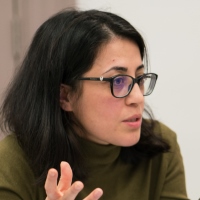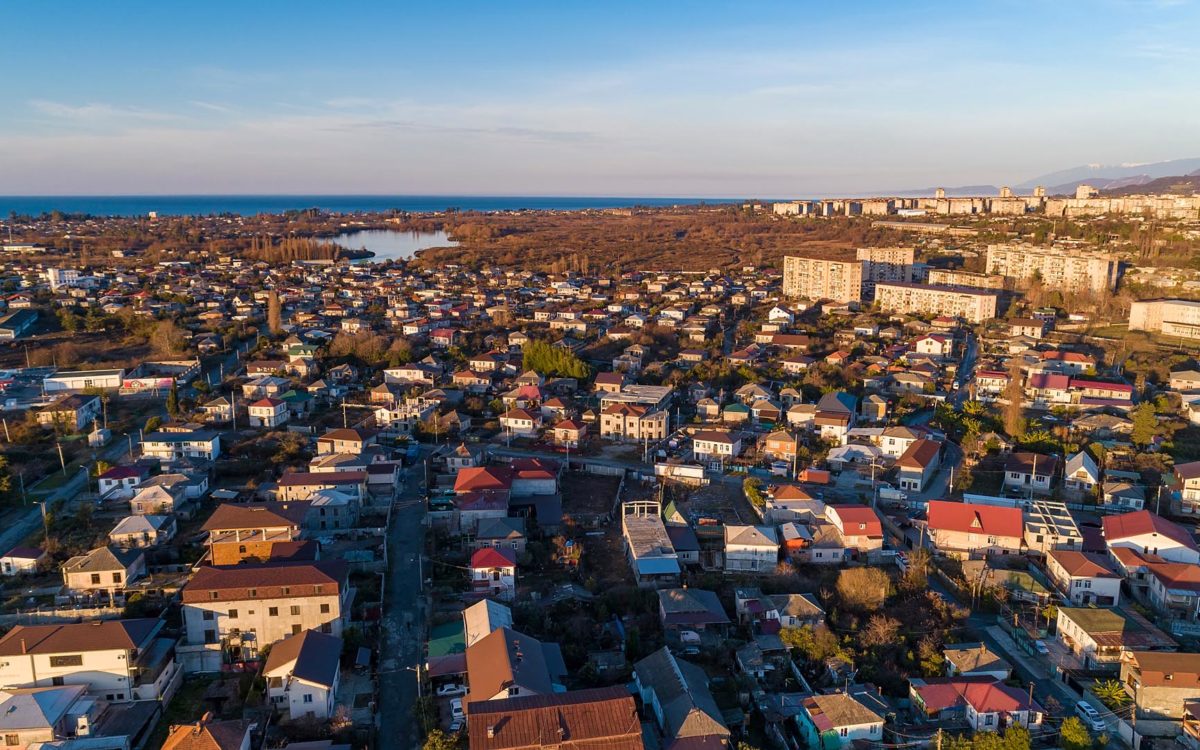
Zeynep Kaya
‘As long as current peacebuilding processes fail to include women fully or meaningfully, they will fail to deliver the meaningful change required for achieving peace in Iraq…’
Unpacking the meanings women’s rights and peace activists attribute to conflict and peace helps us understand peace and conflict processes better. This gendered lens is important not only in grasping the dynamics of civil wars, and how they unfold in different ways. But, also, in appreciating the important (but largely ignored) work women undertake in building peace. In a recent research project, Dr Ilham Makki and I listened to what women’s rights and peace activists in Iraq had to say about peace and justice – and how existing challenges to achieve these should be overcome. These activists emphasised the importance of taking a holistic, long-term, and inclusive approach in any process related to transitioning from war to peace. This holistic and long-term view fits well with the civil war paths framework, which challenges the perceived distinctions between pre-war, war, and post-war stages of conflict. Gender dynamics impacting women’s participation play an important role in shaping different ways in which civil wars unfold. Therefore not all transitions from ‘war’ to ‘post-war’ stages are the same.
Women talking peace in Iraq
Since the beginning of the twentieth century, women’s rights activists and feminists across the world have struggled for the recognition of women’s roles in politics, preventing and resolving conflict and rebuilding societies. The Women, Peace and Security agenda developed as a result of these efforts. Scholars and activists have repeatedly stated that women are important and valuable agents of peace and reconciliation. If women are part of the development of peace agreements, agreements are 35% more likely to last at least 15 years. This is because women are more likely to identify the underlying reasons for conflict and focus on creating long-term solutions, and their access to diverse social groups make them good mediators.
Women are already involved in peace work – from negotiating ceasefires between warring parties, to coordinating humanitarian aid and working on reconciliation. But these remain small scale and localised, and formal peace processes ignore such efforts. Women today remain marginal to negotiations and political processes. Between 1992 and 2019, only 13% of negotiators, 6% of mediators, and 6% of signatories in formal and major peace processes were women; and 7 out of 10 peace processes did not include women at all.
Iraq, where women’s important roles, and their existing peace initiatives are largely ignored, is no exception. However, women in Iraq continue to defy challenges to participation in peace processes. They carry out peace work and initiate processes for its development, play key roles in the ongoing protest movement, and work hard to change the peace and justice systems. This is challenging and risky work in the absence of a genuine, state-led national agenda to build peace and in a gender-discriminative socio-political and legal system.
Women talking peace project
Formal peacebuilding in Iraq has often overlooked the multiple ways in which Iraqi women peace activists informally contribute to peace. They are rarely consulted about what they think of the existing peace processes or their understanding of what comprises ‘peace’. Iraqi researcher and women’s rights activist Dr Ilham Makki and I wanted to shed light on this. Therefore we undertook a research project (funded by GIZ and elbarlament) to understand how women peace activists define peace, and what they think of existing formal peace and justice mechanisms. The report from the research was published in November 2021.
The research findings rely on 91 interviews with peace activists, civil society representatives, journalists, legal experts, and academics (mostly women but also men) in the governorates of Baghdad, Basra, Erbil, Kirkuk, Najaf, and Nineveh. In identifying provinces for the research, we sought to reflect Iraq’s diverse ethnic, religious, and ideological composition – as well as the different experiences of conflict, displacement, instability, and political tension. Each province also has its own specific characteristics, history and internal political contexts that differ from others. In this way, we tried to avoid presenting a narrow and singular view.
Several important insights emerged from our interviews, and it is impossible to do justice to them all in this blog. So here I will focus on some of the most important points raised about the concepts and processes of peace and justice in Iraq.

Holistic peace, ‘real justice’, inclusiveness
First, women peace activists defined peace in a comprehensive way that went well beyond narrow and formal conceptions, and beyond definitions such as ‘the absence of violence’. These definitions reflected a variety of women’s rights agendas, multiple visions of peace, and different views on how these should be pursued. Their definitions and views reflected the line of work respondents pursued, the circumstances of the province they are in, the specific community or people, and the issue under discussion. However, almost all respondents adopted a holistic view of peace: connecting it to wider social, political, and legal structures and institutions.
More specifically, respondents defined ‘peace’ as tolerance and coexistence in society, freedom of opinion and right to protest, women’s mobility without fear of harassment, kidnap, and assassination, women’s ability to take an active role in public and on social media without fear of misogynistic defamation, women’s access to appropriate and necessary health services, the ability to earn a living, among many others.
Research participants also found international actors’ approach to peacebuilding in Iraq to be limited and problematic. They said peacebuilding processes have not been inclusive of women. And, on the rare occasions when women were included in these processes, this was done in a tokenistic way and did not lead to any meaningful participation. Research participants’ views reflected that there are multiple visions and practices of peace in Iraq, but existing peacebuilding processes are narrow minded, they limit the space for unique and relevant conceptions and methods of peace, and fail to generate meaningful change.
Second, the research showed that there is a huge discrepancy between existing transitional justice mechanisms used by the Iraqi government (such as the Martyrs Foundation) and what Iraqi respondents called ‘real justice’. Respondents provided a much wider scope of issues and activities that go beyond existing formal justice procedures.
Participants also provided a different understanding of the relationship between peace and justice compared to how state institutions and formal legal procedures construe it, and criticised existing justice mechanisms for being outdated.
For instance, they said that existing rules and mechanisms do not address injustices and crimes related to genocide, mass atrocities and sexual violence. Instead, these mechanisms focus heavily on compensation and reparation rather than taking a more comprehensive understanding of justice. Participants also criticised the politicisation of justice and the ways justice mechanisms overlook gender-related issues (for instance, injustices in relation to legal discrimination and the lack of punishment for the crime of sexual violence in conflict).
Third, the research found that there is much informal peace work in Iraq in which women and men of all ages, especially the young, work individually, in groups, or as civil society organisations. But this work often goes unnoticed. Peace activists involved in this work use charity, personal income, and funding from international organisations to carry it out. These initiatives may be small-scale; but they are often impactful. They are more inclusive of women, young people, and different ethnic and religious communities. They are also more embedded in local communities compared to formal processes and offer creative ideas, such as sanitising mosques, churches, and Yezidi temples to prevent the spread of COVID-19 and spread the message of peace between different faiths. However, these initiatives are hard to sustain in the absence of political support and sustainable funding.
On the other hand, formal peacebuilding mechanisms, such as the Committee for Coexistence and Community Peace and its local peace committees, were described by respondents as less inclusive. Only a small number of women take part in them. And, when they do, they do not hold important positions. This work was defined by participants as ‘cosmetic’, ‘bureaucratic’, ‘inflexible’ and ‘broad’, and not reflective of on-the-ground circumstances, needs, and expectations.
Lessons for future peacebuilding
To conclude, women in Iraq have a lot to say on peace and how it should be achieved. There is a lot to be learned from how Iraqi women define and envision peace. Their views and practices should be relied on, and these women should be active participants in the development and implementation of all peace programmes and initiatives at national and international levels. As long as current peacebuilding processes fail to include women fully or meaningfully, they will fail to deliver the meaningful change required for achieving peace in Iraq.
Zeynep will be elaborating these findings further at the CWP/ECR Women’s Network roundtable on women in conflict at the University of Sheffield on International Women’s Day (8th March 2022). Event details forthcoming.

